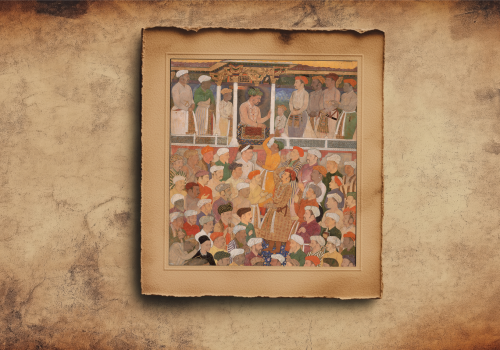The Ramanandis are, like Visnusvamis, the devotees of Lord Rama/ Krisna; they celebrate the 8th of Bhadon as the date of incarnation of their deity, study and revere the Bhagavadgita as their scripture, and visit Vrindavan, Dvarka and Mathura as places of pilgrimage. They, as a rule, abstain from flesh and drink, but lately some of them have begun to make an exception in the case of hemp.The Ramanandis among them have the trident marked, as their insignia, on their foreheads in white the central prong being sometimes in red also, whereas the Nimanandis wear all white> a two pronged fork on their forehead, the shape signifying the figure of Nar Singh, lit. manlion, believed in Hindu mythology to be the incarnation of God who saved Bhakta Prahlad.
They lived, for the most part, in monasteries and were for some time quite a respectable class of faqirs, a few of them rising quite high in the social setup as well. Baron Charles Hugel, the famous German traveller who visited northern India during the reign of Maharaja Ranjit Singh, mentions one Tamu or Tamu Shah, who was the wazir, i.e. minister, of the Raja of Nandaun.The Sikh texts espouse the householder`s life rejecting renunciation, contain passages criticizing the lifestyle of the Bairagis.
According to the Sikh point of view, a true Bairagi is one who cultivates a sense of bairag, i.e. detachment, towards the material world while still living the life of a common householder, adheres to high moral and ethical standards, and attunes himself completely to the Will of God, constantly meditating upon His name. “He who hath his mind fully in control call him alone a bairagi,” says`Guru Amar Das, Nanak III (GG, 569).
References:
1. Crooke, W., The Tribes and Castes of the North Western India. Delhi, 1974
2. Rose, H.A., A Glossary of the Tribes and Castes of the Punjab and North-West Frontier Province. Patiala, 1970
3. Ghurye, G.S., Indian Sadhus. Bombay, 1964


